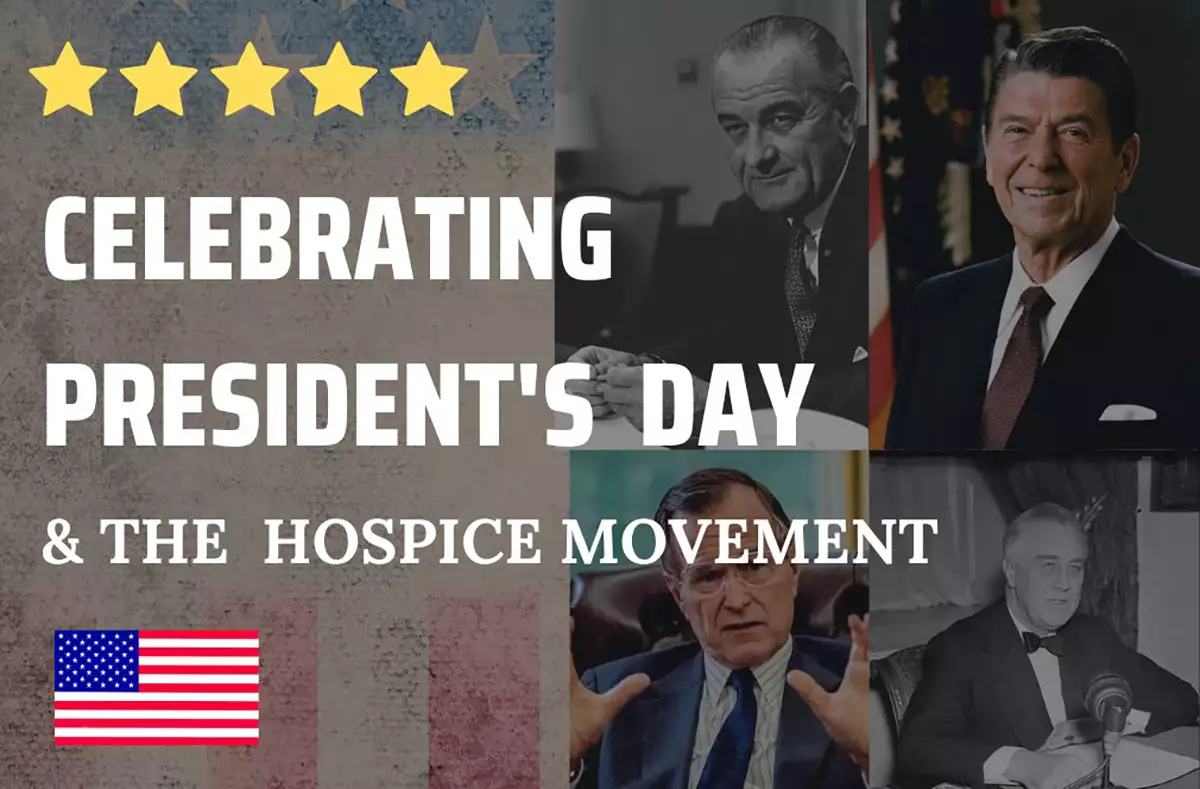Several U.S. Presidents have played significant roles in shaping healthcare policy. Some were instrumental in helping write policy in the area of hospice care and end-of-life care including:
- President Franklin D. Roosevelt and the Social Security Act of 1935
- President Lyndon B. Johnson and the Medicare and Medicaid Act of 1965
- President Richard Nixon and the National Cancer Act of 1971
- President Ronald Reagan and the Medicare Hospice Benefit of 1982
- President George H.W. Bush and the Patient Self-Determination Act in 1990
Hospice care is an essential part of American healthcare. It is a specialized type of medical treatment offered for those suffering from terminal ailments such as cancer, heart disease and dementia. Hospice care is unique in comparison to other medical treatments as it does not focus on curing the illness, but instead works towards relieving suffering through symptom management and providing pain relief. This type of care can be provided wherever necessary — whether in a hospice center, hospital, nursing home, assisted living facility or even at home. The primary objective is to provide emotional and spiritual support while maintaining comfort throughout the end-of-life process.
President’s Day offers a unique opportunity to learn more about how some of our past Presidents have shaped healthcare policy.
Social Security Act of 1935
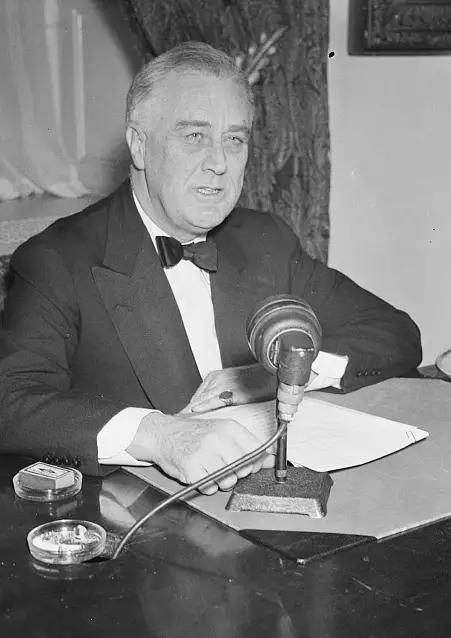
In 1935, President Franklin D. Roosevelt signed the Social Security Act. The act marked a significant turning point in healthcare in the United States. It established a framework to deliver social welfare and public health services leading to wide-ranging changes that worked towards alleviating poverty and promoting citizen’s overall health. The impact of this legislation on hospice is significant.
One of the most pivotal portions of this act was establishing The Social Security Board, which managed and funded healthcare programs that drastically increased access to medical care for Americans.
The Social Security Act paved the way for the establishment of Medicare and Medicaid in 1965, which further evolved in 1982. These programs have provided medical access to millions of Americans who could not otherwise afford it. It was especially beneficial to those requiring hospice care for terminal illnesses. Medicare now covers this type of service for patients with a short time left to live (six months or less). Hospice care provides much needed comfort and a better quality of life for these patients.
Medicare and Medicaid Act of 1965
In 1965, President Lyndon B. Johnson took a momentous step towards increasing healthcare access for millions of Americans by signing the Medicare and Medicaid Act into law. This act provided health insurance to people aged 65 and over or those with certain disabilities. The insurance primarily covered hospitalizations, physician visits and medical treatments. It did not incorporate hospice care which provides comfort care and symptom management for patients suffering from terminal illnesses.
The absence of hospice care in the original Medicare program led to the establishment of the Medicare Hospice Benefit in 1982. (see more information below)
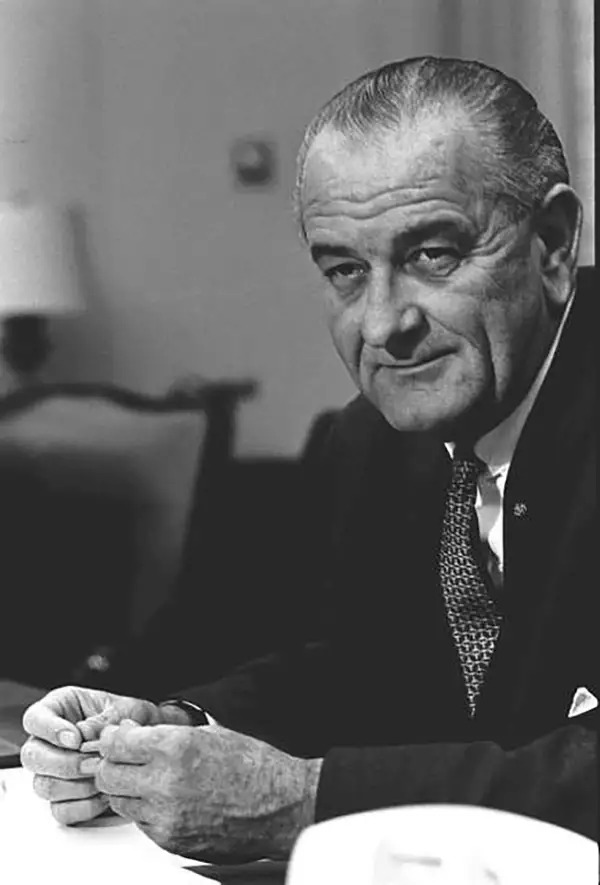
National Cancer Act of 1971
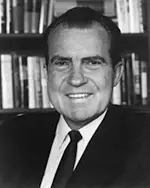
President Richard Nixon signed the National Cancer Act into law on Dec. 23, 1971. This momentous act not only provided substantial resources for cancer research but also established cancer as a national priority. The legislation was prompted by an awakening to the impact of this devastating disease on American people and a critical need for collaborative action at a federal level in order to combat it.
The National Cancer Institute (NCI) was created to further propel the National Cancer Act. This department falls under the umbrella of the prestigious National Institutes of Health (NIH) and is responsible for supporting cancer studies as well as providing financing for cancer treatments and prevention initiatives.
The National Cancer Act did more than just fund cancer research, it also illuminated the importance of palliative care for those battling this disease. Palliative care provides comfort and eases symptoms during serious illness which helps improve life quality for patients as well as their families. The National Cancer Act recognized the critical significance of palliative care paving the way for hospice care to become an integral part of healthcare for cancer patients. Today, hospice care has expanded beyond providing medical and emotional aid to include spiritual support as well.
Medicare Hospice Benefit of 1982
In 1982, President Ronald Reagan established the National Hospice and Palliative Care Week which marked a turning point in the care for the terminally ill. This significant recognition of the importance of hospice was later changed to a month-long observance and moved to November.
President Reagan also signed The Medicare Hospice Benefit into law in 1982. This law provided coverage for those with terminal illnesses to receive hospice care which wasn’t included previously in the 1965 Medicare and Medicaid act. This momentous move opened up end-of-life care to more people, limited financial worries during an emotionally taxing time and highlighted its importance as one of many compassionate medical options available today.
Before the Medicare Hospice Benefit, hospice care was largely provided by non-profit organizations and community-based programs with limited resources due to their reliance on donations. Moreover, access to these services was difficult for many families as they were expensive and beyond reach. This created an immense gap in available treatments for those who suffered from terminal illnesses. The new regulation addressed this gap by providing coverage for hospice care for eligible patients with a range of services including medical and nursing care, counseling and social services.
The Medicare Hospice Benefit has been a driving force behind the growth of hospice programs around the country. It prompted organizations to offer their own services and subsequently expand the industry as more people sought this type of care. Today, you can access hospices that are run by non-profits, for-profit companies and even government agencies. They provide both individuals and families with an invaluable source of compassionate end-of-life care.
Ultimately, the Medicare Hospice Benefit of 1982 was a groundbreaking law that had an immense impact on hospice care in America. This legislation enabled more individuals with terminal illness to receive top-quality, end-of-life treatment and gave families and caregivers the assistance they desperately needed. Presently, hospice care is an indispensable part of our healthcare system. It offers relief and support for patients going through life’s last chapter.

Patient Self-Determination Act in 1990

The Patient Self-Determination Act (PSDA) of 1990, signed into law by President George H.W. Bush, has been a pivotal turning point in advancing patient autonomy. This legislation guarantees healthcare facilities inform patients about their right to make decisions regarding medical treatment especially at the end-of-life when individuals may decide against vigorous care options.
The PSDA mandates that medical establishments provide their patients with a written document specifying their desired care in end-of-life advanced directives. This enables people to clearly articulate what treatments and interventions they desire, even in cases when speaking may be too difficult or impossible for them.
In conclusion, the PSDA impacted hospice care by granting individuals more control in their healthcare choices. Healthcare facilities are required to inform patients about advance directives and document them in their medical records as well. Furthermore, providers must adhere to patient wishes even if that means refusing aggressive treatment plans suggested by others. Ultimately, this law was a monumental leap forward for patient autonomy. It grants people the opportunity to participate in decisions concerning their own health and treatment options.
Honorable Mention
First Lady Barbara Bush may not have been a President, but her legacy lives on in the form of her pioneering work in hospice and palliative care. In 1980 she started the Barbara Bush Foundation for Family Literacy which continues to make an impact today by assisting families. Mrs. Bush devoted much of the 1990s after George H.W.’s presidential term ended to gradually improving end-of-life care with unwavering commitment and passion, touching numerous people’s lives across America.
Barbara Bush’s commitment to hospice and palliative care was made clear in her motivating speech at the National Hospice and Palliative Care Organization (NHPCO) conference in 1991. Barbara passionately asserted that those facing terminal illness should be handled with respect, an ideology she promoted throughout her life. From 1992 through 1994, she served on NHPCO’s board of directors, a testimony to her unwavering compassion towards people nearing their end-of-life journey. In this role, she not only raised more awareness and funds for hospice and palliative care initiatives, but also remained an enthusiastic promoter in improving services for those who are terminally ill.
Apart from her work with the NHPCO, Bush also supported the George and Barbara Bush Endowment for Innovative Cancer Research at the University of Texas MD Anderson Cancer Center.
Bush’s devotion to hospice and palliative care was remarkable, even though she never held a political office. Her noteworthy contributions have impacted countless individuals and families who now benefit from improved end-of-life services. Her dedication to hospice and palliative care will be revered for generations to come.
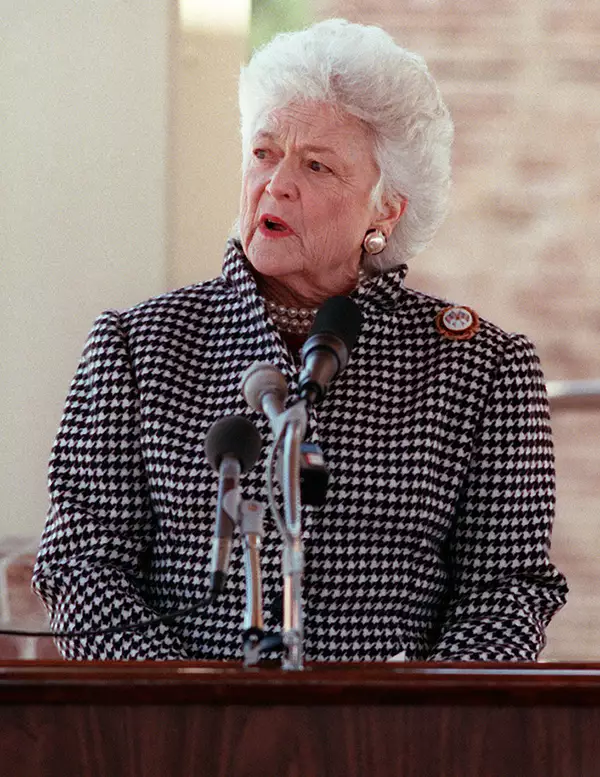
Conclusion
These five legislative acts stand as remarkable contributions of U.S. Presidents towards healthcare policies concerning hospice and end-of-life care. Their enduring legacy has had a significant impact on countless patients and families nationwide. It has especially helped older Americans and those with low incomes who now have access to high-quality comfort care through Medicare and Medicaid coverage. Thanks to the thoughtful leadership of these presidents, individuals across the country have access to invaluable resources in their time of need. This empowers them to make informed decisions about their medical options during the final stages of life.
At Smoky Mountain Home Health and Hospice, we recognize and honor the contributions of American presidents and their policies in advancing hospice care. We remain committed to providing compassionate hospice services to those in need. We encourage anyone who requires hospice care to please contact Smoky Mountain Home Health and Hospice or call us at (423) 623-0233.

